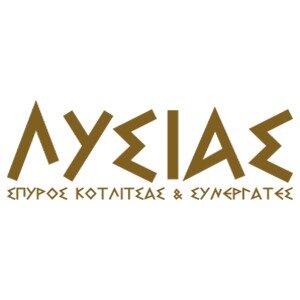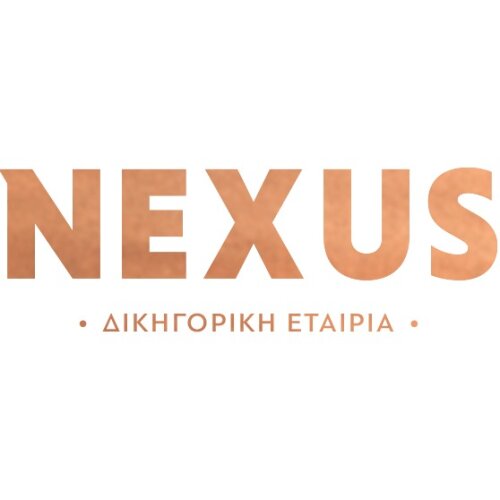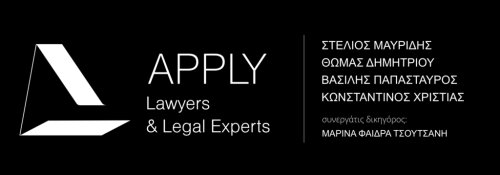Best Public-Private Partnerships (PPP) Lawyers in Thessaloniki
Share your needs with us, get contacted by law firms.
Free. Takes 2 min.
List of the best lawyers in Thessaloniki, Greece
About Public-Private Partnerships (PPP) Law in Thessaloniki, Greece
Public-Private Partnerships (PPP) in Thessaloniki are collaborative agreements between the public sector, such as government bodies or local councils, and private companies. These partnerships are designed to finance, construct, manage, operate, or maintain projects that serve the public interest. Examples include infrastructure development, schools, hospitals, transportation services, municipal facilities, and more. The PPP framework in Greece aims to leverage private sector expertise, investment, and efficiency while ensuring public control and accountability. In Thessaloniki, PPPs play a significant role in urban development and in the enhancement of public services and facilities.
Why You May Need a Lawyer
Legal guidance is essential in all stages of a PPP, from initial planning to ongoing management. You may require a lawyer’s assistance if:
- You are a private investor or company interested in participating in PPP projects in Thessaloniki
- You represent a municipality or public body planning to initiate a PPP
- You need to draft or review complex PPP contracts or financial agreements
- You want to assess risks, liabilities, or compliance with Greek laws and European Union regulations
- There is a dispute, breach of contract, or issues regarding project implementation
- You seek advice on procurement, tendering, or competition rules
- You require due diligence regarding land, permits, or regulatory approvals required for the project
- You want clarity on the allocation of risks, revenues, rights, and obligations in a PPP arrangement
Local Laws Overview
PPP projects in Thessaloniki operate under Greek national laws, harmonized with European Union directives. The core legal framework includes Law 3389/2005, which sets the structure for PPPs in Greece. This law outlines the criteria for project selection, public procurement processes, risk sharing mechanisms, dispute resolution methods, and the approval procedures required for PPP contracts. Additionally, relevant administrative, tax, environmental, and sector-specific laws may apply depending on the nature of each project.
At the municipal level, local regulations in Thessaloniki may influence implementation details, particularly for projects affecting city infrastructure, public spaces, or services. Authorities like the Ministry of Development and Investments, the Hellenic Single Public Procurement Authority, and local councils are typically involved in approving and overseeing PPP projects. The involvement of the European Investment Bank or other international organizations may also be relevant for large-scale investments or projects with cross-regional impact.
Frequently Asked Questions
What is a Public-Private Partnership in Thessaloniki?
A PPP in Thessaloniki is a legally binding agreement where a public authority partners with a private entity to deliver public infrastructure or services. The private partner may finance, design, construct, operate, or maintain a project, often with payment or revenue-sharing models set out in the contract.
Which types of projects are commonly developed as PPPs in the city?
Common PPP projects in Thessaloniki involve transportation infrastructure (such as roads and metro lines), waste management facilities, public buildings, energy works, and tourism-related infrastructure.
Who regulates PPPs in Thessaloniki and Greece?
PPP projects are regulated primarily by the Greek Ministry of Development and Investments and the Interministerial PPP Committee. The Hellenic Single Public Procurement Authority oversees procurement matters. Local authorities in Thessaloniki may also play a regulatory role for city-based projects.
Is open tendering necessary for PPP projects?
Yes, in most cases, PPP projects are awarded through transparent public tendering processes in line with Greek and EU procurement rules, ensuring fair competition and value for money.
How is risk shared between the public and private partners?
PPP agreements will clearly define risk sharing, often allocating construction, financial, operational, and demand risks to the party best able to manage them. Legal advice is vital to ensure fair and feasible risk allocation.
What is the duration of typical PPP agreements in Thessaloniki?
PPP contracts usually range from 10 to 30 years, depending on the nature and size of the project, after which operations or assets may revert to the public sector.
What funding sources are available for PPP projects?
Funding may come from private investment, bank loans, European Union structural funds, or public budgets. The financing method is defined in the PPP agreement for each project.
What are the key legal risks for private participants in PPPs?
Private parties may face risks related to regulatory changes, delays in approvals or permits, unforeseen costs, and changes in market conditions. Legal assistance is key to identifying and mitigating these risks during contract negotiations.
Are foreign investors allowed to participate in Thessaloniki PPP projects?
Yes, foreign investors and companies can participate subject to Greek and European Union legal requirements, including procurement standards, anti-corruption rules, and financial capability assessments.
What happens in case of disputes arising from a PPP contract?
Most PPP contracts specify dispute resolution procedures, which may include negotiation, mediation, arbitration, or court proceedings under Greek or international law. Having experienced legal representation is crucial to protect your interests.
Additional Resources
- Greek Ministry of Development and Investments (PPP Unit)
- Interministerial PPP Committee
- Hellenic Single Public Procurement Authority
- Municipality of Thessaloniki - Economic Development and Technical Services Departments
- European Investment Bank - Advisory support for PPP projects in Greece
- Local Chambers of Commerce and Industry
- Legal and financial professional associations in Thessaloniki
Next Steps
If you are considering involvement in a PPP project in Thessaloniki, start by outlining your objectives and the type of project you wish to pursue. Gather relevant documentation, such as project proposals, preliminary financial plans, and stakeholder details. Consult with a lawyer who specializes in PPPs to review your options, navigate the tendering process, assess risks, and draft or negotiate agreements. Early legal consultation can help you avoid costly mistakes and ensure full compliance with Greek and European laws. Preparation and professional advice are essential to maximizing the benefits and minimizing the risks of PPP participation in Thessaloniki.
Lawzana helps you find the best lawyers and law firms in Thessaloniki through a curated and pre-screened list of qualified legal professionals. Our platform offers rankings and detailed profiles of attorneys and law firms, allowing you to compare based on practice areas, including Public-Private Partnerships (PPP), experience, and client feedback.
Each profile includes a description of the firm's areas of practice, client reviews, team members and partners, year of establishment, spoken languages, office locations, contact information, social media presence, and any published articles or resources. Most firms on our platform speak English and are experienced in both local and international legal matters.
Get a quote from top-rated law firms in Thessaloniki, Greece — quickly, securely, and without unnecessary hassle.
Disclaimer:
The information provided on this page is for general informational purposes only and does not constitute legal advice. While we strive to ensure the accuracy and relevance of the content, legal information may change over time, and interpretations of the law can vary. You should always consult with a qualified legal professional for advice specific to your situation.
We disclaim all liability for actions taken or not taken based on the content of this page. If you believe any information is incorrect or outdated, please contact us, and we will review and update it where appropriate.

















